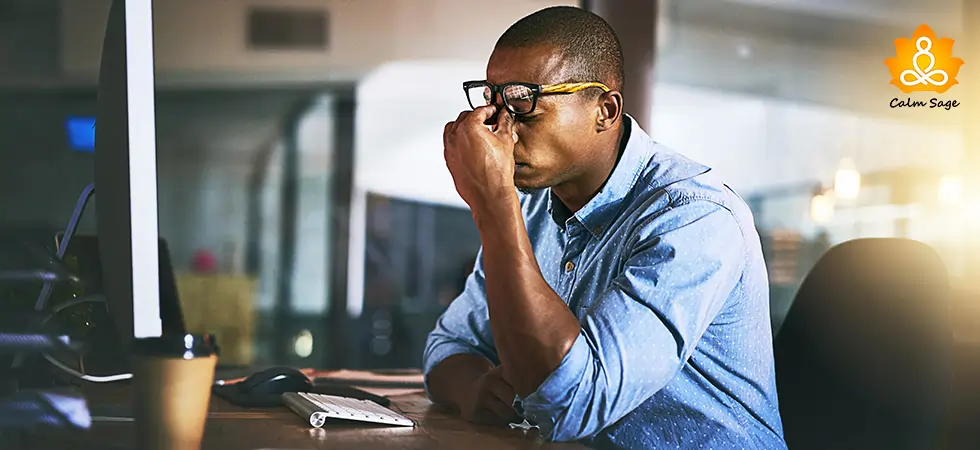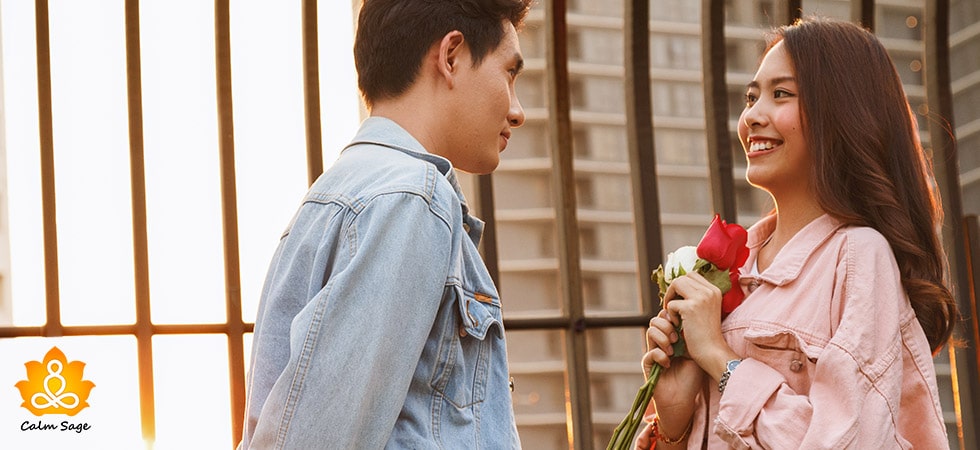Anticipatory Anxiety | What Is It & How To Cope With It

Do you feel anxious the night before a big test or a meeting? Do you experience stress over something that hasn’t happened yet? Maybe you experience anxiety when you think about the next day or hour. This feeling of anxiety and stress that one feels over a situation or a conversation that hasn’t happened yet is called anticipatory anxiety. The term ‘anticipatory’ might be a giveaway.
We never know what the future is going to be like. Or even the next hour what with a global pandemic and all. Anticipatory anxiety is the feeling you get when you worry and fear over things that could happen. Things that you have no control over and are unpredictable.
Worry and stress over such situations can severely affect your day-to-day life. While this condition isn’t categorized as specific anxiety or panic disorder, it is still considered a major symptom of anxiety-related conditions such as generalized anxiety disorder, panic disorder, panic attacks, and social anxiety disorders.
Symptoms Of Anticipatory Anxiety

The symptoms of this anxiety are both emotional and physical such as:
- Hyperventilation
- Chest pains and spasms
- Trouble breathing
- Ruminating thoughts
- Trouble concentrating
- Nausea
- Fear or apprehension
This type of anxiety can affect your relationships – at work and home. Anticipatory anxiety makes you imagine the worst-case scenarios and those can interfere with your life in general.
Types Of Anticipatory Anxiety

We all, at some point in our lives, experience anticipatory anxiety at least once. Before going for an interview for your dream job, before going on a date, or before a big exam. Anticipatory anxiety can manifest itself into:
1. Panic Attacks
Panic attacks can cause a person to have chest and muscle pain, trouble breathing, and experience extreme terror. If a person is having a panic attack, it is quite common to anticipate another one. This anticipation over another attack can become too overwhelming and the fear of losing power over yourself publically can affect your ability to focus on the moment.
2. Social Phobia/Anxiety
Social anxiety is a disorder where a person feels negative reactions and judgment from others. Anticipatory anxiety in such cases can prevent a person from opening up in front of a social setting and worrying about criticism and judgment from others can also prevent a person from speaking in front of others.
3. Phobias
Phobias are extreme fear of objects, experiences, and even places a person feels. People who experience phobias can develop anticipatory anxiety by means of coming into contact or going somewhere they are afraid of. For instance, a person who is afraid of crowds may feel anticipatory anxiety over a situation where they might encounter lots of people in one place. Phobias with anticipatory anxiety can severely affect a person’s day-to-day routine and relationships with others.
Post-traumatic stress disorder (PTSD)
Trauma and trauma-related stress is something that seldom goes away. PTSD-related anxiety can occur during anything that has a chance to trigger trauma. For instance, someone who’s been in a car crash may experience anticipatory anxiety while driving or while being in a car with someone else.
How To Cope With Anticipatory Anxiety
Anticipatory anxiety can cause distress and can interfere with your daily life. Here are some ways to help you cope with this anxiety:
1. Breathing Exercises

Anticipatory anxiety often causes panic, rapid, and shallow breathing. Deep breathing exercises and progressive muscle relaxation techniques work best when you need to focus on your breathing and body relaxation. Breathing exercises can help slow down your panic and PMR can help relax your body muscles and tension causing you and your body to calm down.
2. Focus On The Positive
Another way to cope with anticipatory anxiety is to not focus on the “what if” but on the positive. Guided imagery works best for this. If and when you feel stress and anxiety over something that hasn’t happened yet, close your eyes, take a deep breath, and imagine your happy place. This activity can help you calm and relax.
3. Grounding Exercises
Grounding exercises such as snapping a rubber ball, or holding an object to help you focus on the present moment instead of an uncertain one can help you decrease anxiety. There are many grounding techniques you can use to help you focus and reconnect to the present moment. The best part; you can do them anytime, anywhere.
4. Meditation

Meditation, especially mindfulness meditation can be helpful in situations that may cause you to feel anticipatory anxiety. Again, focusing on the present moment can help you calm down.
5. Self-Help
If you start feeling anxiety over situations you haven’t experienced, you can try challenging and reframing your thoughts from negative to positive ones. You can also try to take control of your situation rather than let the situation take control of your mind and body.
6. Therapy

Therapy options like cognitive-behavioral therapy (CBT), psychodynamic psychotherapy (that focuses on panic disorders), exposure therapy, and Eye Movement Desensitization and Reprocessing (EMDR) – can also help treat anticipatory anxiety. Working with the help and guidance of a therapist this anxiety can be controlled.
Consult a professional mental healthcare provider to understand which therapy technique works best for you.
7. Medication
Medications don’t necessarily help treat anxiety and its symptoms but they can help improve and control the symptoms. Medications can only help if they are combined with therapy treatment. A person should only take medications if; a) their doctor prescribes some, or b) if the symptoms are extreme and unmanageable on their own.
Always consult your primary healthcare provider before taking any kind of medication.
Final Words

Anticipatory or any kind of anxiety, in general, can be uncomfortable and can cause disruptions in your life. Anxiety over situations that make you uncomfortable and cause you to worry about is normal. Wondering about the future, in some cases, can help you to prepare better for situations but sometimes unnecessary worry can cause unnecessary distraction, discomfort, and distress.
When the stress over the unknown causes you to feel more anxious than normal, then you should learn to cope with it. If the self-help strategies fail to help you then it is best to consult a professional therapist to guide you through healthy coping techniques.
With a little practice, having a positive outlook in whatever you do, and enjoying the present moment, you can learn to manage your worries, stress, and anxiety.
“You don’t have to control your thoughts. You just have to stop letting them control you.” – Dan Millman
Close your eyes, take a deep breath, and just be.




















